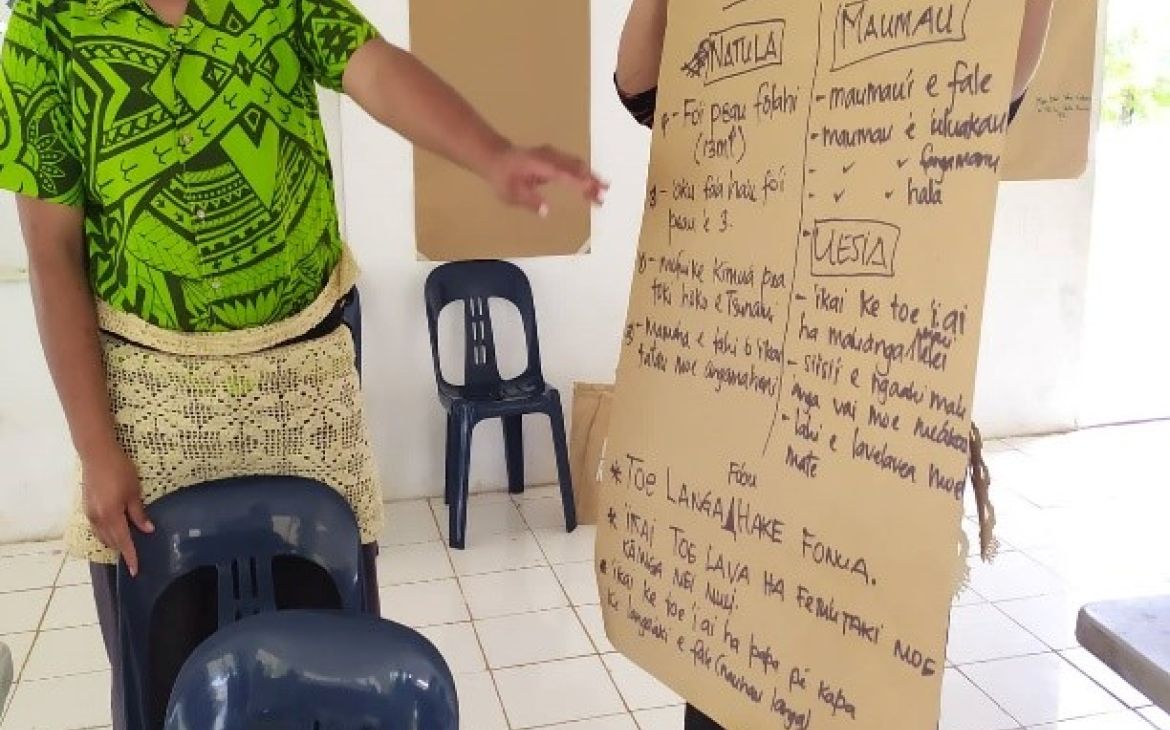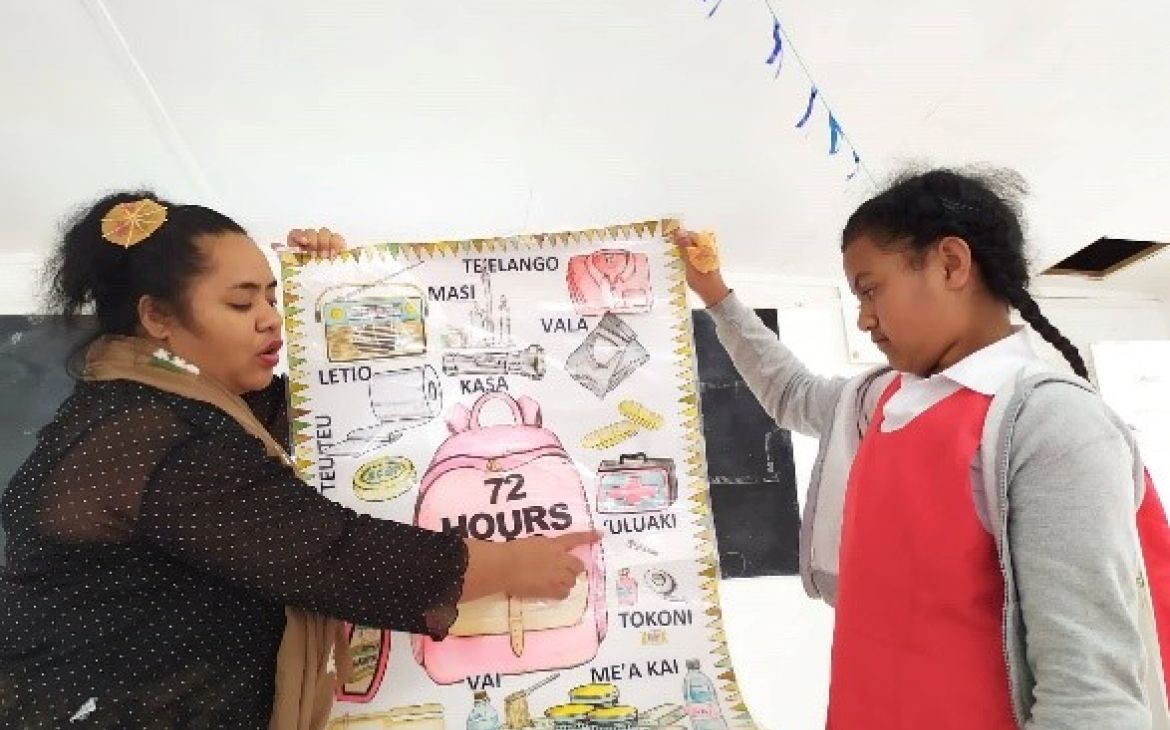September 2020 - The UNITAR Hiroshima Office’s Women’s Leadership in Tsunami-based Disaster Risk Reduction (DRR) Training Programme 5th annual cycle, the 2020 programme, is currently open for applications from Pacific SIDS at https://apply.unitar.org/. Read on to learn about the experience of one Tongan alumni.
Tropical cyclones, tsunami, drought, and flash floods are just some of the natural disasters that menace the Pacific Island nation of Tonga.
“It’s an all-year cycle,” says Lu’isa Uai Taunga, an officer for Tonga’s National Emergency Management Office, which is part of the Ministry of Meteorology, Energy, Information, Disaster Management, Environment, Climate Change, and Communications.
In fall 2017, Lu’isa participated in the 2017 Cycle of the UNITAR Hiroshima Office’s Women’s Leadership in Tsunami-based Disaster Risk Reduction (DRR) Training Programme, which is supported by the Government and People of Japan.
The programme, which targets female representatives from the governments and civil society of Pacific and Indian Ocean nations, offers training on DRR at institutional, community, and government levels. With sessions taking place in the Japanese cities of Sendai, Tokyo, Wakayama, and Kobe, participants are given in-depth knowledge of DRR best practices developed by communities with direct experience of earthquakes, and tsunami.
The latter, in particular, made a deep impression on Lu’isa.
“The picture of destruction, sorrow, and death that I saw during the site visits is still quite vivid in my mind,” she says. “It was one of the major factors that has influenced my work. I want to do as much as I can for the people on the island where I am posted, in order to alleviate the impact and effects of natural disasters.”
Back on the Tongan island of Ha'apai, Lu’isa set to work. In addition to securing funding to build an evacuation center and install water tanks, she conducted various activities to raise awareness about DRR. These included visiting schools to teach students to prepare “72-hour” disaster preparedness bags and organizing poetry and poster competitions.
Lu’isa also held workshops to train various community members, such as town and district officers, emergency operation center staff, and students.
“I found during my school visits that the DRR messages, such as those about evacuation, that we shared at workshops with town officers and other adults were not trickling down to the children,” she says. “So this year I changed my approach. This is something I learned from UNITAR during visits to schools that used a bottom-up approach. Children are taught and the message will trigger upwards.”
During the 2011 Tohoku earthquake and tsunami, some schools did not have sufficient evacuation plans, and many children lost their lives as a result. Disaster preparedness measures based on these lessons learned were shared with UNITAR programme participants during their time in Japan.
In coordination with the Tonga Red Cross, Lu’isa also adapted UNITAR programme sessions to conduct a workshop for youth that taught first aid skills and how to evacuate vulnerable members of society such as the elderly, pregnant women, and people with disabilities. Although not all of Tonga’s islands have sufficient wheelchairs or paved roads for easy evacuation of vulnerable persons, the workshop taught youth how to carry them using blankets.
On Tsunami Awareness Day on November 5th, the UNITAR training physically took place at Hirogawa Town, in Wakayama Prefecture, where participants witnessed how deeply the preparedness against tsunami is rooted in the community and how it was passed from generation to generation through long-continued-rituals of Shinto Ceremony. They also witnessed the inclusive nature of the evacuation drill that takes place every year on that day, involving various stakeholders as schoolchildren, from kindergarten to junior high school, government officials, railway staff, people from day-care centers and community people.
Lu’isa noticed that local business owners and residents were often not present at DRR workshops and trainings in Tonga. In order to ensure that everyone in the community knows what to do in the event of a disaster, she organized door-to-door outreach to distribute tsunami survival tips and disaster preparedness items to shops, restaurants, airports, sightseeing locations, and homes.
Identifying community needs is a key component of UNITAR trainings, including the DRR programme. It is the first step to providing meaningful assistance, which, in a disaster situation, could save lives.
Lu’isa still refers to the materials she received during UNITAR’s programme as she plans DRR measures, under a “no one left behind” concept.
“The skills obtained during my training with UNITAR have helped me in my work,” she attests. “Raising awareness and building the capacities of young children, youth, and community members will contribute achieving the Sendai Framework's targets to reduce the number of lives lost and people affected.”
Thanks to Lu’isa and her counterparts in Tonga and other countries, Pacific Island communities are better prepared to take action and assist vulnerable persons when a natural disaster, inevitably, hits.



